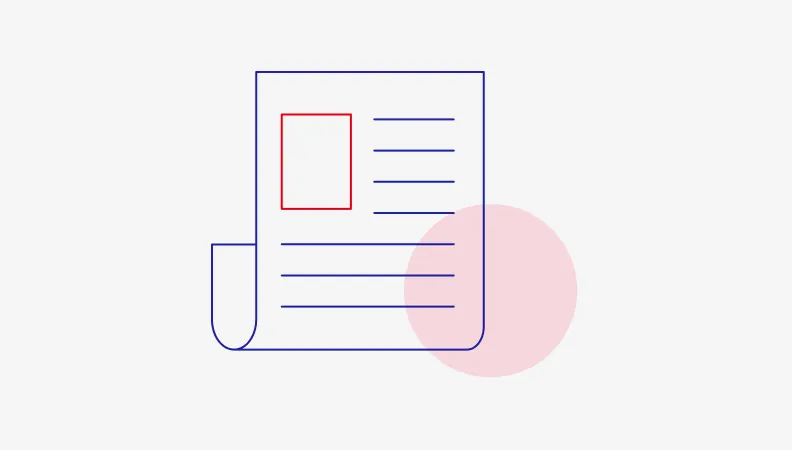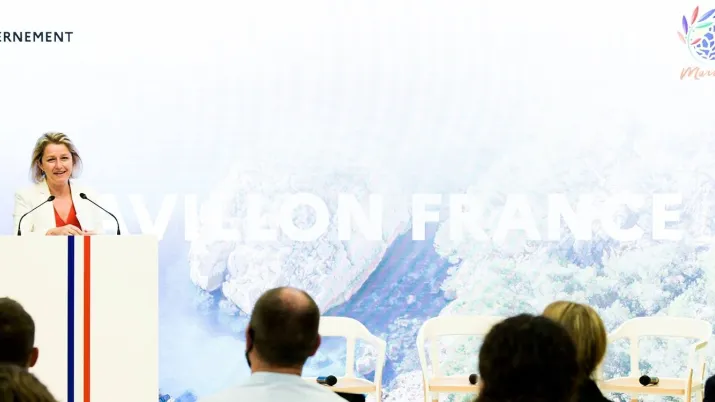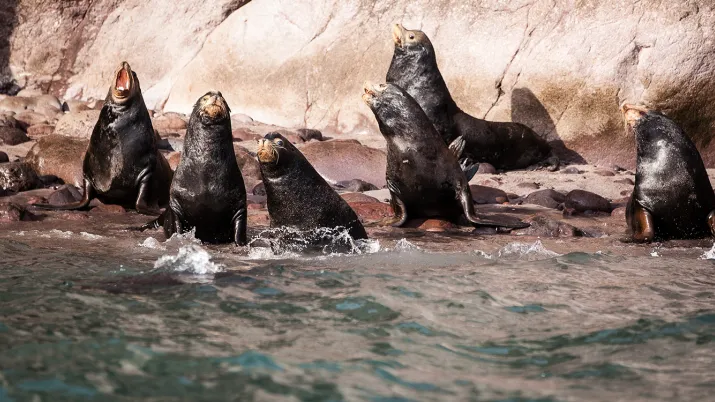Share the page
IUCN launches the Second Edition of the IUCN Global Standard for Nature-based Solutions™
Published on

Abu Dhabi, United Arab Emirates, 10 October 2025 (IUCN) – IUCN has officially launched the Second Edition of the IUCN Global Standard for Nature-based Solutions™ at the IUCN World Conservation Congress 2025, marking a crucial step forward in the Union’s efforts to advance Nature-based Solutions that are effective and robustly rooted in science.
“Nature-based Solutions are central to tackling climate change, biodiversity loss and sustainable development. They remind us that when we work with nature — not against it — we create pathways for resilience, equity, and hope. The updated IUCN Global Standard strengthens this vision, providing clearer guidance, stronger safeguards, and a renewed focus on long-term impact. It empowers our Members and partners to design and deliver solutions that are practical, inclusive, and transformative — restoring not only ecosystems, but also the well-being of communities that depend on them,” said Dr Grethel Aguilar, Director General of IUCN.
Today’s publication, produced by the IUCN Nature-based Solutions Management Hub and the IUCN Commission on Ecosystem Management, was launched during a high-level Forum event organised by the IUCN Secretariat, the IUCN Commission on Ecosystem Management (CEM), and France’s Agence française de développement. The paper represents a hallmark publication which underlines the Union’s leadership on advancing Nature-based Solutions (NbS) globally.
“The new IUCN Global Standard for Nature-based Solutions is a key tool to strengthen the quality and credibility of NbS projects. As we mark the 10th anniversary of the Paris Agreement, it also reminds us how far we have come since COP21, when France and IUCN worked together to bring Nature-based Solutions to the heart of global climate and biodiversity action. For public development banks like AFD, the Standard provides valuable guidance to promote robust, inclusive and high-impact approaches – and to build the confidence needed to scale up financing for NbS,” said Marie Bjornson-Langen, Deputy Executive Director for Sustainable Development Solutions at the French Development Agency (AFD).
“The revised Global Standard reflects lessons learned since 2020 and rising demand for credible, science-based action. It gives practitioners and decision-makers the tools to design solutions that are effective, equitable and lasting, grounded in both science and real-world experience,” emphasised Angela Andrade, Chair of the IUCN Commission on Ecosystem Management (CEM) and Chair of the International Standard Committee (ISC).
“The updated Global Standard reinforces the link between ecological integrity and sustainable investment. It strengthens financial feasibility, equity, and adaptive management—helping governments, businesses and communities design Nature-based Solutions that deliver measurable benefits for people, nature and economies, and remain resilient over time,” added Charles Karangwa, Global Head of the Nature-based Solutions Hub at IUCN.
IUCN pioneered the concept of Nature-based Solutions (NbS) twenty years ago, first defining Nature-based Solutions as ‘actions to protect, sustainably use, manage and restore natural or modified ecosystems, which address societal challenges, effectively and adaptively, providing human well-being and biodiversity benefits.’ IUCN has since developed, thanks to the support of the French Development Agency (AFD), as part of a long-standing partnership between France and IUCN, a rigorous standard to inform the design, implementation and evaluation of interventions: the IUCN Global Standard for Nature-based Solutions™. The First Edition of the Global Standard was published in 2020.
The objective of the IUCN Global Standard for Nature-based Solutions™ is to provide guidance and a global framework for the design, verification and scaling up of NbS. The Global Standard includes globally consistent Criteria and Indicators, supported by the Principles for Nature-based Solutions, to measure the strength of interventions. Structured as a systematic learning and quality assurance tool, the Global Standard ensures that NbS are applied effectively and sustainably, maximizing their potential to address societal challenges while delivering measurable benefits for people and nature.
The Second Edition includes important updates that strengthen clarity, usability and safeguards. Building on five years of experience, the revised Standard moves beyond a checklist approach to embrace systems thinking, emphasising the interconnections between ecological, social and economic dimensions. It streamlines language and structure for greater clarity, while reinforcing equity and rights by placing Indigenous Peoples and local communities at the centre of decision-making. Safeguards, grievance mechanisms and adaptive management are strengthened to ensure NbS remain effective over time. The update also introduces clearer framing of financial feasibility and long-term viability, and places stronger emphasis on enabling conditions – such as policy, finance and regulatory frameworks – to help scale NbS with confidence worldwide.
Revisions and updates to the Global Standard have been reviewed and endorsed by distinguished expert and technical bodies involved in the governance of the Standard, including the core working group within the IUCN NbS Management Hub, the International Standard Committee (ISC), and the IUCN Council.
The Global Standard for NbS is accompanied by a guide and an online self-assessment tool. The IUCN NbS Management Hub supports governments to mainstream NbS in national policies and strategic plans and helps communities and non-governmental organisations to improve actions on the ground. IUCN’s work on Nature-based Solutions is governed by IUCN’s International Standard Committee and is supported by experts from the IUCN Commission on Ecosystem Management (CEM) and its NbS Thematic Group.
The Union offers stakeholders from all sectors the opportunity to learn how to apply Nature-based Solutions in their professional context through a Professional Certificate on NbS. This online course is offered by the IUCN Academy.
Contact : Odstrcil, Chloé, Press officer, AFD
Tél. +33 6 24 61 33 18, odstrcilc@afd.fr



